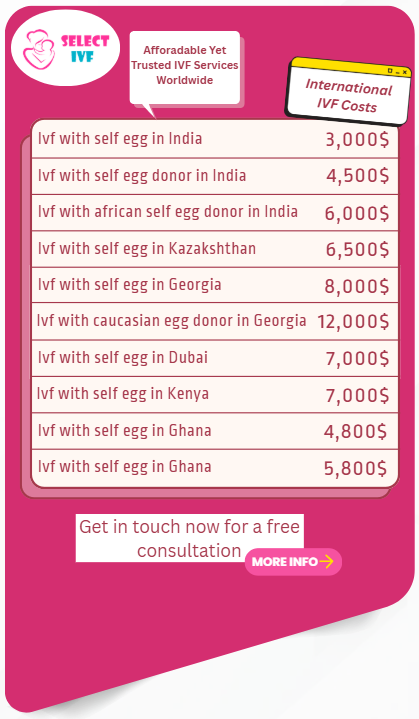Being a parent is a rewarding journey filled with love and dreams that bring joy to one’s heart. Surrogacy provides a new opportunity to bring that dream to life when the traditional methods become challenging. Surrogacy is Legal in India, but it’s only in the form of altruistic surrogacy. This means that a woman can carry a baby for another person out of kindness, not for monetary gain.
Surrogacy brings with it lots of legal implications, and the Indian government has made sure that there are clear laws to protect both the parents and surrogate mother. These laws ensure that the process is safe, and every participant is treated gracefully and lovingly. For many couples trying to conceive, these legal measures offer peace of mind and reassurance to proceed without anxiety.
There are many struggling parents out there, and surrogacy provides hope to countless families, especially with the option available in India. This journey is emotional and loving and adds more cherished members to the families, one tiny heartbeat at a time.
Introduction to surrogacy
Surrogacy is an assisted reproductive technique and involves the procedure of IVF and a surrogate mother. Surrogacy is mainly opted for by the intended parents. When the intended couple faces infertility, it means unable to conceive. So surrogacy involves the surrogate, and she carries the baby on behalf of the intended mother. Surrogacy involves an IVF procedure in which eggs are retrieved from the female partner and sperm from the male partner, combining both and forming an embryo which is implanted into the uterus of the woman.
The following are the types of surrogacy in India:
- Traditional surrogacy: This surrogacy is not allowed in India because it creates a genetic link between the child and the surrogate mother. Traditional surrogacy involves the injection of sperm directly into the uterus of the surrogate mother.
- Gestational surrogacy: This surrogacy is allowed in India. It creates the genetic link between the child and the intended mother. This surrogacy takes the egg from the intended mother and sperm from the intended father to fertilize in a laboratory dish to get an embryo, which is implanted into the uterus of the surrogate mother.
- Commercial surrogacy: Allowing surrogate mothers to get compensation. However, this surrogacy is not allowed in India because it leads to the exploitation of the surrogate mother.
- Altruistic surrogacy: Allowing intended couples to get the surrogate mother from their own side. The surrogate mother can be a relative, friend, or family member of the intended couple. However, compensation is not allowed to surrogate mothers under altruistic surrogacy.
Who regulates surrogacy in India?
The regulation of surrogacy in India is regulated by the Surrogacy Regulation Act 2021. This act controls the practice of surrogacy in India. Under this surrogacy, only altruistic surrogacy and gestational surrogacy are allowed. Other surrogacies, such as traditional surrogacy and commercial surrogacy, are banned. There are some regulations under the Surrogacy Regulation Act 2021, and these are mentioned below:
- Intended couples must have an infertility certificate to undergo surrogacy.
- They must be Indian citizen and married for at least 5 years.
- Only altruistic surrogacy and gestational surrogacy are allowed in India for the treatment of infertility.
- Traditional surrogacy and commercial surrogacy are banned in India for the treatment of infertility. It leads to exploitation of the surrogate mother mother which is why it’s banned.
- Intended couples must not have any biological child except the child has a life-threatening disease.
- Intended couples must not have a child from a previous surrogacy.
- The age of intended couples must be between 23 to 50 years for females and 26 to 55 years for males.
- The age of the surrogate mother must be between 25to 35 years old.
Surrogacy is Legal in India
Yes, surrogacy is legal in India, but only in a very carefully regulated form called altruistic surrogacy. This means a woman can carry a baby for another couple out of love and compassion, not for money. The Surrogacy (Regulation) Act, 2021 clearly allows only Indian heterosexual married couples to opt for surrogacy, and they must be married for at least five years and proven to be medically infertile. The surrogate mother must also meet certain conditions, such as being married, having her own child, and doing it voluntarily without any financial gain.
Surrogacy cost in India
The awareness about the Surrogacy cost in India before the treatment is crucial. Knowledge of cost in advance helps individuals plan their budget and make wise decisions regarding surrogacy. Surrogacy cost in India varies on multiple factors such as surrogacy clinic location, the success rate of the clinic, age of the individuals as younger age individuals have lower costs, legal fees, medical procedure fees, surrogate mother charges, donor charges if required, additional procedure charges, etc. so the cost of surrogacy in India ranges from INR 1200000 to INR 2000000. However, this is an estimation; the actual cost varies depending on the individual condition and case.
With the help of the following table, you will understand the cost of surrogacy in India:
| Surrogacy Procedure in India | Cost of surrogacy in India (INR) |
| Surrogacy using own eggs & own sperm | Rs. 12 Lakh To 18 Lakh |
| Surrogacy by donor eggs and own sperm | Rs. 13 Lakh to 19 Lakh |
| Surrogacy with donor sperm and own eggs | Rs. 14 Lakh to 20 Lakh |
| Surrogacy (cost) & Embryo Transfer (Cost) | Up to Rs. 4 Lakh |
| Surrogate Mother Selection (Cost)+ Blood Tests (Cost) + Surrogate Mother Preparation (Cost) | Up to Rs. 2 Lakh |
| Normal Vaginal Delivery Cost | Up to Rs. 70,000 |
| Cesarean section or C-section Delivery Cost | Up to Rs. 1 Lakh to 2 Lakh |
| Housing for Surrogate mother (Cost) + Food (Cost) | Up to Rs. 3 Lakh |
The following will help you to understand the surrogacy treatment cost in different states of India:
| States of India | Cost of surrogacy in different states of India (INR) |
| Surrogacy cost in Chennai | 12 to 20 lakh |
| Surrogacy cost in Hyderabad | 12 to 18 lakh |
| Surrogacy cost in Bangalore | 14 to 20 lakh |
| Surrogacy cost in Delhi | 13.4 to 23.7 lakh |
| Surrogacy cost in Mumbai | 14.65 to 24 lakh |
| Surrogacy cost in Punjab | 10.08 to 20 lakh |
| Surrogacy cost in Haryana | 12.64 to 20 lakh |
| Surrogacy cost in Rajasthan | 15.9 to 20 lakh |
| Surrogacy cost in Uttar Pradesh | 14 to 21 lakh |
| Surrogacy cost in Madhya Pradesh | 14 to 20.02 lakh |
| Surrogacy cost in Dehradun | 14.91 to 20 lakh |
| Surrogacy cost in Bihar | 13.5 to 20 lakh |
| Surrogacy cost in Jharkhand | 14 to 20 lakh |
| Surrogacy cost in Assam | 12 to 18 lakh |
| Surrogacy cost in Gujarat | 14 to 20.8 lakh |
| Surrogacy cost in Tamil Nadu | 14.47 to 23 lakh |
| Surrogacy cost in Andhra Pradesh | 14 to 20 lakh |
| Surrogacy cost in Himachal Pradesh | 14.06 to 20.62 lakh |

Factors affecting the price of surrogacy in India
Multiple factors are responsible for affecting the price of surrogacy in India, which are mentioned below:
- Medical procedure: the surrogacy process has a long medical procedure that starts from screening the involved candidates and making arrangements for egg retrieval and transfer into the uterus of the surrogate mother. This whole procedure is performed in the advanced laboratory, and advanced tools are used to make the surrogacy successful.
- Professional skills: The surrogacy process requires the skills of professionals who are highly qualified from a prestigious university. Doctors with high skills and talent charge more as compared to other doctors.
- Success rate: A surrogacy centre with a high success rate charges more as compared to other surrogacy centres.
- Surrogate mother charges: Surrogacy treatment requires the surrogate mother to carry the pregnancy on behalf of the intended mother. The surrogate sacrifices her time, effort, and life to help the intended couple. So it’s the duty of couples or hospitals to pay compensation.
- Medication charges: The surrogacy process has a step of egg retrieval and embryo transfer. Before egg retrieval, hormonal injections are provided to trigger the ovaries. So that the ovaries can produce more eggs. Additionally, before embryo transfer, there’s a need to prepare the uterus, which is why medications are provided to recover the uterus. So medication for egg retrieval and embryo transfer charges a lot as it is imported from other countries.
- Number of IVF cycles: Multiple IVF attempts cost more as compared to one or two IVF attempts. If you succeed in the first attempt, then it can reduce the price of surrogacy in India.
Why Surrogacy is legal only for Indian Couples in India?
Surrogacy is a beautiful way to help couples who are unable to have a child naturally. In India, the government understands this deep desire of becoming parents, but it also wants to protect the health, emotions, and rights of everyone involved, especially the surrogate mother and the baby. That’s why surrogacy is only legal for Indian heterosexual married couples who meet certain conditions.
Documents required for legal surrogacy in India
Surrogacy is a deeply emotional and life-changing journey. To make sure everything goes smoothly and safely for both the intended parents and the surrogate mother, the Indian government has made some clear rules. One important part of this legal journey is collecting and submitting the right documents.
These documents help prove that the surrogacy is being done for the right reasons, with care and responsibility,not as a business. Let’s look at the documents required for legal surrogacy in India, for both the intended parents and the surrogate mother.
Documents Needed from Intended Parents:
- Marriage Certificate
To prove the couple is legally married (for at least 5 years). - Age Proof of Both Partners
Wife: Between 23–50 years
Husband: Between 26–55 years
(Submit Aadhaar card, passport, or birth certificate) - Infertility Certificate
Issued by a registered medical practitioner stating that the couple is unable to conceive naturally. - Identity Proof (Aadhaar/Passport)
For both husband and wife to verify Indian citizenship. - No Existing Child Declaration (Self-affidavit)
A written and signed letter declaring that the couple does not have any living biological, adopted, or surrogate child (exceptions allowed for children with life-threatening disorders). - Medical Fitness Certificates
From a certified doctor stating both partners are physically and mentally fit for the surrogacy journey. - Insurance Proof
Insurance coverage for the surrogate mother (usually for 36 months) is mandatory and must be shown.
Documents Needed from the Surrogate Mother
- Age Proof
She must be between 25 to 35 years old. - Marriage Certificate or Widowhood Proof
Surrogate must be married or a widow/divorced woman with at least one biological child of her own. - Medical Fitness Certificate
Confirming she is physically and mentally healthy for carrying the pregnancy. - Consent Letter (Written & Signed)
A letter from the surrogate stating that she is choosing surrogacy willingly, without pressure or money. - Identity Proof (Aadhaar/Passport)
To prove she is an Indian citizen and above 25 years of age. - Psychological Evaluation Report
A report from a counsellor or psychologist confirming she is emotionally ready for the surrogacy process. - No Previous Surrogacy Declaration
She must not have been a surrogate mother before, as per the law.
Can single parents opt for surrogacy in India?
In India, single parents are not allowed to opt for surrogacy as per the current law. The Surrogacy (Regulation) Act, 2021 clearly states that only Indian heterosexual married couples are eligible to pursue surrogacy, and they must be legally married for at least five years. This means that single men, single women, unmarried individuals, and even live-in couples or same-sex partners are not permitted to go through surrogacy in India.
The main aim behind this restriction is to ensure that the child is born into a stable, two-parent household that can offer emotional, physical, and financial support. The law believes that a child deserves a safe and secure family environment from the beginning. While many believe single parents can also raise children with love and care, the law focuses on protecting the surrogate mother, the child, and the entire process from emotional or legal complications.
This rule has been a topic of debate, especially among progressive voices who support equal parenting rights. But for now, surrogacy in India is strictly allowed only for married Indian couples, and single individuals need to explore other parenting options like adoption, where rules may be more flexible.
Is surrogacy safe and legal in India for NRIs?
Yes, surrogacy is legal and safe in India for Indian citizens, including OCI (Overseas Citizen of India) cardholders, but with specific conditions. According to the Surrogacy (Regulation) Act, 2021, only Indian heterosexual married couples are eligible for surrogacy, and they must be legally married for at least five years and medically certified as infertile. OCI holders who have Indian citizenship status are eligible, as they are still considered part of the Indian legal framework.
However, foreign nationals who do not hold Indian citizenship or OCI status are not allowed to pursue surrogacy in India, even if they previously accessed it before the law changed. The main aim is to prevent misuse of surrogacy and protect the surrogate mother and child. When done through registered clinics, the medical process is safe and carefully monitored.
So, if a couple holds valid Indian citizenship or OCI cards and fulfills all the legal requirements, they can legally and safely pursue altruistic surrogacy in India. It’s important to consult a legal expert and a recognized clinic to ensure the process follows the law and remains a smooth, ethical, and emotionally fulfilling journey.
What is the success rate of surrogacy in India?
The success rate of surrogacy in India is based on so many factors including the age of the individual, if the individual is younger age then the success rate increases, the expertise of the doctor and specialist, if the specialist is trained with the required skills and high number of experience results in high success rate, number of IVF attempts, increased number of IVF attempts, results in high success rate. Hence, the success rate of surrogacy in India ranges from 80 to 98%.
With the help of the following table, you will understand the surrogacy success rate in India:
| Surrogacy treatment in India | Success rates of surrogacy in India |
| Surrogacy with self-eggs | 50 to 90% |
| Surrogacy with self-sperm | 55 to 80% |
| Surrogacy with donor eggs | 70 to 95% |
| Surrogacy with donor sperm | 73 to 97% |
| Surrogacy with FET | 60 to 65% |
| Surrogacy with ICSI | 50 to 65% |
What should you consider when selecting the top surrogacy clinic in India?
We understand how difficult it is to select the best option for your infertility treatment, but do not get tense, as one of the best options is going to be suggested to you, where the patient collaborates with highly experienced and qualified doctors. The patient will find it comfortable as the staff will always stand by them, away from all the worries that come to their mind. We offer all types of infertility treatment, so contact us today! To start, consider the following factors while selecting a location:
i. The patient-focused assistance of the centre
ii. Professionals with extensive education and experience
iii. Infrastructure that is well-built for maximum comfort and happiness
iv. The entire medical staff treats you with respect
v. Assists you throughout the entire process from the beginning
vi. Offers transparent fees and processes
You have the option of choosing surrogacy for all of these! So, reach out to us at +91- 9899293903 | Email ID: info@www.selectivf.com
Why pick Select IVF for surrogacy in India?
Several infertile couples trusted the select IVF for their bright future. We care for every patient who has issues of infertility. We understand the phase of infertility, and that’s why we want to assist you in your dream of achieving parenthood.
The prices of surrogacy treatment are reasonable at our centre. We ensure the highest success rates, we maintain transparency, and ensure personalised care and support to our patients. Get the treatment from our clinic and make your life stress-free by hearing the giggling of your newborn.
Here’s why Select IVF is best for surrogacy treatment in India:
- The high success rate of surrogacy and other infertility treatments
- Several infertility treatments for different infertility issues
- Use of cutting-edge technologies
- Equipped with highly skilled and educated doctors
- Affordable prices for surrogacy and other infertility treatments
- Ensures utmost comfort and support during the procedure
Final words
Surrogacy is a beautiful way to help couples who cannot have a baby naturally. Surrogacy is Legal in India, but only in a safe and controlled way. The law allows only Indian married couples to go through surrogacy, and that too without giving money to the surrogate, this is called altruistic surrogacy.
The government made these rules to protect the health and emotions of the surrogate mother and the baby. It also helps prevent the misuse of the process by stopping people from turning it into a business. These laws may feel strict, but they are made with care to make sure that surrogacy remains a respectful and loving journey.
If you are an Indian couple dreaming of becoming parents, legal surrogacy gives you a real chance, with safety, support, and hope. It’s not just about having a baby, it’s about starting a family the right way, with trust and love.
FAQs (Frequently Asked Questions)
Who is eligible to become a surrogate mother?
Women in the age range between 21 to 35 years are eligible to become surrogate mothers. Surrogate must have consent from her hsband and family to become surrogate mother. In addition, she must have child with her husband.
What is included in the surrogacy cost?
The cost typically includes medical procedures, IVF treatment, surrogate care, hospital charges, legal documentation, and miscellaneous expenses.
Who is eligible for surrogacy in India?
Only Indian heterosexual married couples (with certain medical conditions) are eligible. The woman must be aged 23 to 50, and the man 26 to 55.
What is the average cost of surrogacy in India?
The average cost ranges between ₹12 lakhs to ₹20 lakhs, depending on the clinic, location, medical procedures, and other factors.
Is surrogacy 100% successful in India?
Yes, surrogacy is 100% successful in India. Its success rate depends on factors such as the age of the surrogate mother, age of the couple, quality of gametes, lifestyle, uterine problems, skills and expertise of doctors, etc. Usually, its average is around 80 to 95%. This can increase to 100% and decrease to lower values, and it’s all because of the condition of the patient and case complexity.
Read More:-









